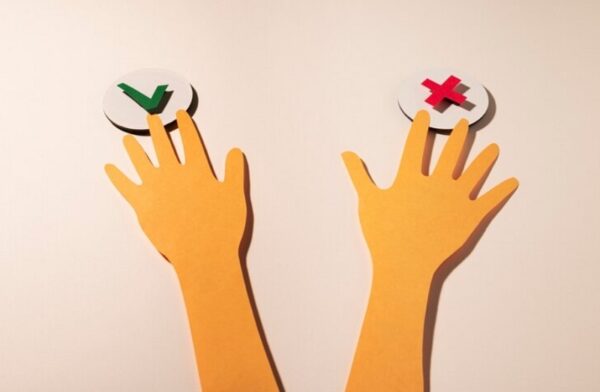Have you ever found yourself judging someone you’ve just met? Do you try to avoid stereotypes?
Consciously or unconsciously, we all engage in a type of prejudice bias towards others. It’s almost impossible for us to not be biased about people. These biases can be explicit or implicit and they can all equally tint how we see the world and the people around us.
But what’s the difference between implicit vs. explicit biases? And how can we tell when we are letting those biases guide us? Keep on reading to find out!
Implicit vs. Explicit Biases: What’s the Difference
An implicit bias refers to the subconscious thought or belief that a person holds towards a certain group of people. These biases are often deeply ingrained and can influence our actions and decisions without us even realizing it.
On the other hand, an explicit bias is a conscious attitude or belief that a person is aware of and openly expresses. These biases are usually more obvious and can be in the form of discriminatory behavior and language.
While both implicit and explicit biases can have harmful effects, implicit biases are harder to identify and address. That’s why it’s crucial to increase awareness and understanding of our own biases.
3 Signs You May Be Unconsciously Prejudiced
While many of us strive to be open-minded, it’s important to recognize that we may hold prejudice that can lead to discriminatory behavior. Some signs that you may have unconscious prejudice are the following:
1. Making Assumptions About Someone Based on Their Race, Gender, or Appearance
This could manifest in avoiding someone because of their skin color or assuming that a person is less capable because of their gender. We may also make assumptions about someone’s behavior based on their appearance, without getting to know them. These assumptions are often rooted in gender roles and stereotypes and can lead to discrimination.
2. Feeling Uncomfortable or Threatened by People Who Are Different from You
This could manifest itself in various ways, such as feeling defensive when your own beliefs or behaviors are challenged. These reactions could be rooted in subconscious bias and fear of the unknown.
The initial step in conquering these emotions involves recognizing and acknowledging them. It is important to actively challenge these biases and educate ourselves to become more inclusive of others. To start, you can view training classes here to help you have a structured understanding of the issue.

3. Excluding Certain Individuals Without Any Valid Reason
One of the clearest warning signs of prejudice is excluding certain individuals without a valid reason. This can manifest in various ways, such as dismissing someone’s opinions or ideas without valid reasoning. These actions may seem subtle, but they are rooted in unconscious prejudice and can have a significant impact on those who are excluded.
Be More Conscious of Prejudice
Understanding the difference between implicit and explicit biases is crucial in addressing prejudices. The three signs discussed serve as important indicators of potential bias. And it should prompt self-reflection and education.
Let’s strive towards creating a more inclusive and unbiased society. Take the first step by examining your own biases and making a conscious effort to challenge them.




